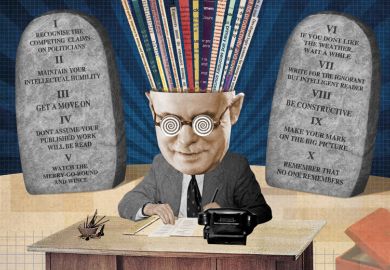The knowledge, expertise and research that can help to inform, design and scrutinise government policy is a crucial part of academia’s wider value to society. Yet many academics struggle to contribute to policymaking – in part because they lack support from their institutions. This renders them less able to apply their expertise to improving policy decisions.
When they do get to apply their insights, it can make a real difference to peoples’ lives. One academic’s work on the benefits of early interventions by health visitors – nurses who visit people at home – led to the coalition government investing in 4,200 new posts.
Meanwhile, a panel of 25 academics helps the government conduct randomised, controlled trials on policies before they are rolled out, taking in everything from helping customers switch energy provider to using befriending services to improve end-of-life care.
And a number of major policy changes have been shaped by academics, including auto-enrolment in pensions, the introduction of the national minimum wage and a string of recent changes to the migration system.
Yet many academics still struggle to get to grips with policymaking. They find it hard to know who to approach and how; funding opportunities to establish connections or undertake policy-focused research appear limited; and it is difficult to find time for engaging with policymakers alongside research, teaching and other pressures.
The result is that policy influence, especially in central government, remains the preserve of a small group of usual suspects; valuable expertise is wasted, and policy is poorer as a result. A lack of diversity is also a problem, with the government tending to work with academics who are disproportionately old, white, male and London-based.
Government departments and parliamentarians are partly responsible for this, and they must improve the way they involve academics in policy formation, as an Institute for Government report published last year argued. But a lack of support from academic institutions also squanders the potential benefits of research. Our new report, published today, shows that universities, research councils and funding councils also have a key role in improving and widening policy engagement. But they must raise their game.
First, academia must properly fund policy engagement. There is currently limited dedicated funding to support activities such as secondments, evidence synthesis and training. The research excellence framework gives universities an incentive to cultivate a small number of high-impact academics, but not to build wider capacity.
Second, academia must make the “high-impact career” attractive. Policy engagement is time-consuming, yet academics have no space in their busy 40:40:20 schedules of research, teaching and administration to do it. Diverting time away from producing peer-reviewed journal articles to take up a secondment is considered career suicide – even though such interchange is crucial to improving connections.
Third, academia must improve its understanding of how to get policymakers to use evidence. A major review found that basic research – for instance on the value of secondments or co-producing research – was limited. This means that the government is spending billions funding research to generate new knowledge with little understanding of how to ensure that the knowledge created has maximum impact.
UK Research and Innovation has a key role to play in all of this. With oversight of the research and funding councils, it has convening power to transform how academics from all disciplines, backgrounds and regions contribute to the shaping of government policy.
Although it aims to be a “single voice to enable better connectivity to policymakers”, it has so far said little on this subject. This may be down to sensitivity over a largely separate issue: since its creation, UKRI has faced tough questions about whether it threatens academic autonomy over research decisions.
These are legitimate concerns, but this debate should not be an obstacle to UKRI and others taking steps to improve policy engagement.
While there is clear room for improvement, academia’s strong relationship with another sector offers reasons for encouragement.
Twenty years ago, links between academia and business were weak and created little value. But after a sustained period of investment, there are now 150 business schools, and university-business collaboration is “robust, healthy and growing”. Academia must now deliver a similar change in the relationship between universities and policymakers. If it fails to do so, many academics will continue to struggle to contribute to policymaking, and we will all miss out on the potential benefits.
Tom Sasse is a senior researcher at the Institute for Government thinktank and the author of the report How Academia Can Work with Government.
Register to continue
Why register?
- Registration is free and only takes a moment
- Once registered, you can read 3 articles a month
- Sign up for our newsletter
Subscribe
Or subscribe for unlimited access to:
- Unlimited access to news, views, insights & reviews
- Digital editions
- Digital access to THE’s university and college rankings analysis
Already registered or a current subscriber?




